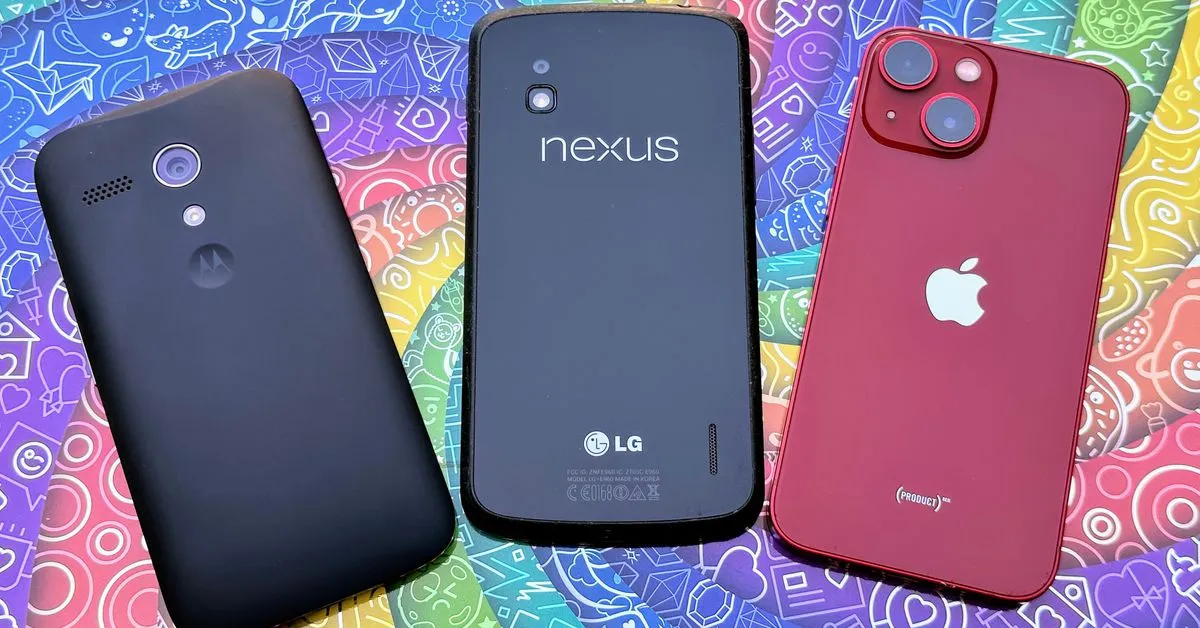The Verge: So long, small phones / There are fewer choices than I thought — and I’m getting out before the end.
The Verge: So long, small phones / There are fewer choices than I thought — and I’m getting out before the end.


The Verge: So long, small phones / There are fewer choices than I thought — and I’m getting out before the end.


You're viewing a single thread.
Even if only one percent of people want smaller phones, with the huge volume of phones sold I don’t understand how that’s not enough to justify a healthy market.
It probably doesn't make sense to spend the time, money, and staff to develop/market a small phone for most of the manufacturers because the people that want a small phone will still buy a bigger phone if there isn't the option for a small one. They can spend less money and make the same number of sales.
Unfortunately, the same goes for headphone jacks, removable batteries, even sliding keyboards.
I really miss being able to find a phone with features I want.
I hear you. I do wish there was more variation, but their all basically the same now.
Pretty much why I still use a Note 9. I've tried switching to other phones but keep going back to this phone.
Expandable storage was great for consumers but not the big corporations. They can charge much more for storage and keep their prices high for that reason.
As long as this phone works, I'll stick with it.
Right I don’t doubt that the decision makes financial sense because I know several companies, most notably Apple, gave it a really sincere effort with enormous resources.
But it does show that even this last supposed benefit of hyper capitalism—consumer choice—is a bit of a lie. All TVs spy on you, it’s almost impossible to buy a small car in the US, even expensive clothes are made in the same cheap fast fashion factories, and on and on.
Yeah, the small car thing is a perfect parallel. The market doesn't necessarily fit preferences perfectly: instead, companies optimise for whatever MOST folks will buy that nets them the most money.
They make more money selling a large phone with a bigger sticker price and a bigger profit margin, so they make big phones. And the most phone-hungry people, power users, who buy a new phone every year or so, tend to buy big phones. So they cater to that group.
Think of it this way: when I bought my iPhone SE 2016 7 years ago, I cast maybe $100 of profit "vote" in the marketplace.
Every time someone buys a $1700 folding phone, they cast something between $500 and $1000 of profit "vote" in the marketplace. And they do that every year, not once every 7.
Of course, I'd be willing to spend a lot more on a really decent small phone. But nobody in the market has really experimented with that model yet. And it is admittedly harder to fit components into a smaller phone body (though not as hard as Apple would have you believe -- after all, the 14 and 15 literally takes up more space with a useless empty plastic SIM card spacer than the headphone jack used to take.
But there is the possibility they could capture almost the whole small phone market, instead of competing against titans for a piece of the big phone market. I also don't see how this is not still a big market that is being ignored. So many random trash phones that must be getting pitiful sales numbers, but they can't make anything in a small size, like they used to do in huge numbers just half a decade ago?
I get that the Mini might not reach numbers acceptable for Apple, but for some random Android manufacturers, those same numbers would be huge, and they have basically no competition right now. The first company to offer something decent in that size bracket would have that whole market to themselves.
But no, i think they all just dream that they might beat Google and Samsung for the same 6.3-6.8" market and be rich.
99% of the folks that want a particular phone will buy another one instead. Can't discount the bullheaded consumer (like me).
1% is nothing for a company like Apple or Samsung. Making something actually nice for 1% of the market would never pay off.
Especially when those 1% will just buy whatever else they offer most of the time.